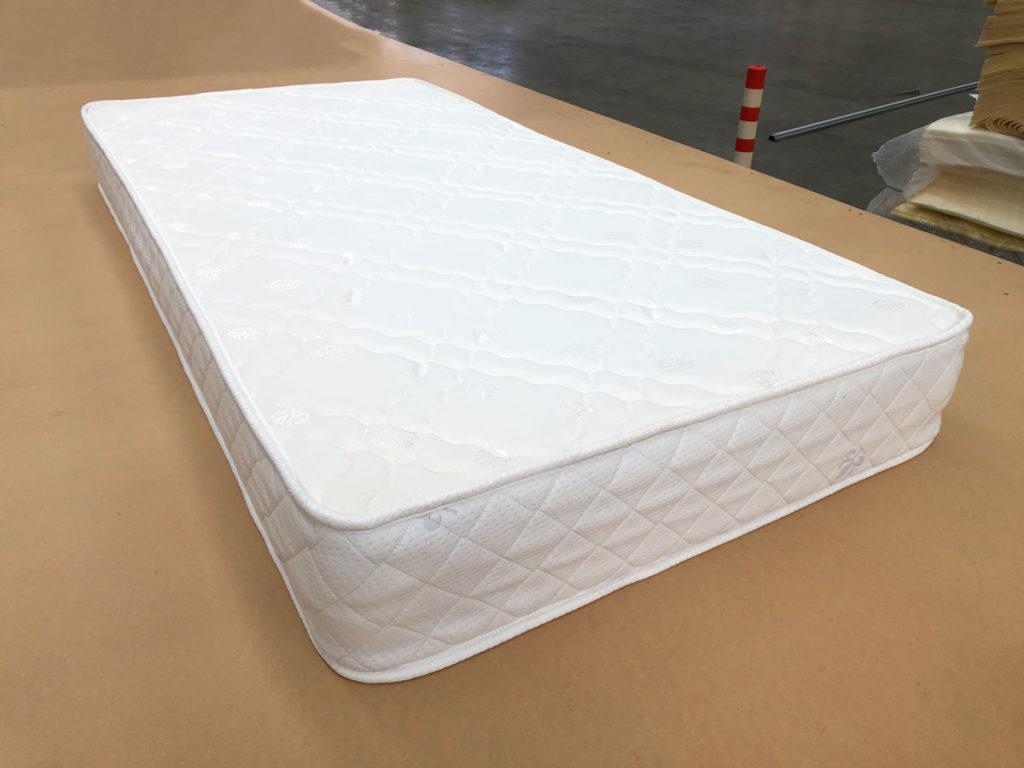Dealing with a sewer smell coming from your bathroom sink overflow can be a frustrating and unpleasant experience. Not only is the smell unpleasant, but it can also be a sign of a larger plumbing issue. In this article, we will discuss the top 10 causes of sewer smell from a bathroom sink overflow and how to get rid of it.Sewer Smell from Bathroom Sink Overflow
There are several potential reasons why you may be experiencing a sewer smell coming from your bathroom sink overflow. One of the most common causes is a dry P-trap. The P-trap is a curved pipe underneath your sink that is designed to hold a small amount of water. This water acts as a barrier to prevent odors from coming back up through the drain. If the water in the P-trap evaporates due to infrequent use or a leak, it can allow sewer gases to enter your bathroom. Another possible cause of sewer smell in your bathroom sink is a clog in the sewer line. When your sewer line is blocked, it can cause sewage to back up into your plumbing system, including your sink. This can result in a foul odor emanating from your bathroom sink overflow. Additionally, a cracked or damaged sewer line can also lead to a sewer smell in your bathroom sink. If there is a break or crack in your sewer line, it can allow sewer gases to escape and enter your plumbing system, causing a foul odor in your bathroom. Other potential causes of sewer smell in your bathroom sink include poor ventilation, a faulty wax ring on the toilet, or a damaged vent pipe. It is important to identify the specific cause of the sewer smell in order to effectively eliminate it.Causes of Sewer Smell in Bathroom Sink
Now that you are aware of some of the possible causes of sewer smell in your bathroom sink overflow, it's time to discuss how to get rid of it. The first step is to check the P-trap and ensure that it has enough water in it. If the water level is low, simply run the water for a few minutes to refill it and create a barrier against sewer gases. If a dry P-trap is not the issue, you may need to check for a clog in the sewer line. You can try using a drain snake or a plunger to remove the clog and allow the sewage to flow freely. If the clog persists, it may be necessary to call a professional plumber to assess and fix the issue. In the case of a cracked or damaged sewer line, it is crucial to have it repaired or replaced as soon as possible. Not only can a damaged sewer line cause a sewer smell in your bathroom sink, but it can also lead to more serious plumbing problems if left untreated. Improving ventilation in your bathroom can also help to eliminate sewer smells. Make sure the exhaust fan is working properly and consider keeping a window open to allow fresh air to circulate. If the sewer smell is coming from the toilet, it may be necessary to replace the wax ring. The wax ring is a seal between the toilet and the floor that can become damaged over time, allowing sewer gases to enter your bathroom. Lastly, if a damaged vent pipe is the cause of the sewer smell, it will need to be repaired or replaced by a professional plumber. The vent pipe is responsible for removing sewer gases from your plumbing system and directing them outside. A damaged vent pipe can lead to a buildup of sewer gases in your bathroom.How to Get Rid of Sewer Smell in Bathroom Sink
In addition to a sewer smell, you may also notice a strong odor of sewer gas coming from your bathroom sink overflow. Sewer gas is a mixture of various gases, including hydrogen sulfide, methane, and ammonia. It is not only unpleasant, but it can also be harmful to your health if inhaled in large quantities. If you are experiencing a sewer gas smell in your bathroom sink, it is important to address the issue promptly. Follow the steps mentioned above to identify and eliminate the cause of the odor.Sewer Gas Smell in Bathroom Sink
Another possible source of sewer smell in your bathroom is the drain itself. Over time, hair, soap scum, and other debris can build up in your drain, causing a foul odor. Regularly cleaning and flushing your drain with hot water and a mixture of baking soda and vinegar can help to prevent a sewer smell from developing.Sewer Smell in Bathroom Sink Drain
If you only notice a sewer smell in your bathroom sink after using it, the cause may be related to your plumbing system. It is possible that there is a clog or blockage in your drain that is causing the smell to linger after you use the sink. It may also be due to poor ventilation or a damaged vent pipe. If the issue persists, it is best to consult a professional plumber.Sewer Smell in Bathroom Sink After Using
The overflow pipe in your bathroom sink is designed to prevent the sink from overflowing and causing water damage. However, it can also be a source of sewer smell if it becomes clogged or damaged. Make sure to regularly clean and maintain your overflow pipe to prevent any unpleasant odors.Sewer Smell in Bathroom Sink Overflow Pipe
Similar to the overflow pipe, the overflow tube in your bathroom sink can also become clogged and cause a sewer smell. It is important to keep this tube clean and clear of any debris to prevent odors from developing.Sewer Smell in Bathroom Sink Overflow Tube
If you notice a sewer smell coming from your bathroom sink overflow drain, it could be due to a clog or blockage in the drain itself. Regularly cleaning and maintaining your drain can help to prevent this issue.Sewer Smell in Bathroom Sink Overflow Drain
The overflow hole in your bathroom sink is another potential source of a sewer smell. Similar to the overflow pipe and tube, this hole can become clogged and cause odors to linger. Keep it clean and clear to prevent any unpleasant smells. In conclusion, a sewer smell coming from your bathroom sink overflow can be caused by a variety of factors. It is important to identify and address the issue promptly to prevent any potential health hazards and to maintain the comfort and cleanliness of your bathroom. If the problem persists, do not hesitate to contact a professional plumber for assistance.Sewer Smell in Bathroom Sink Overflow Hole
How to Eliminate Sewer Smell from Your Bathroom Sink Overflow
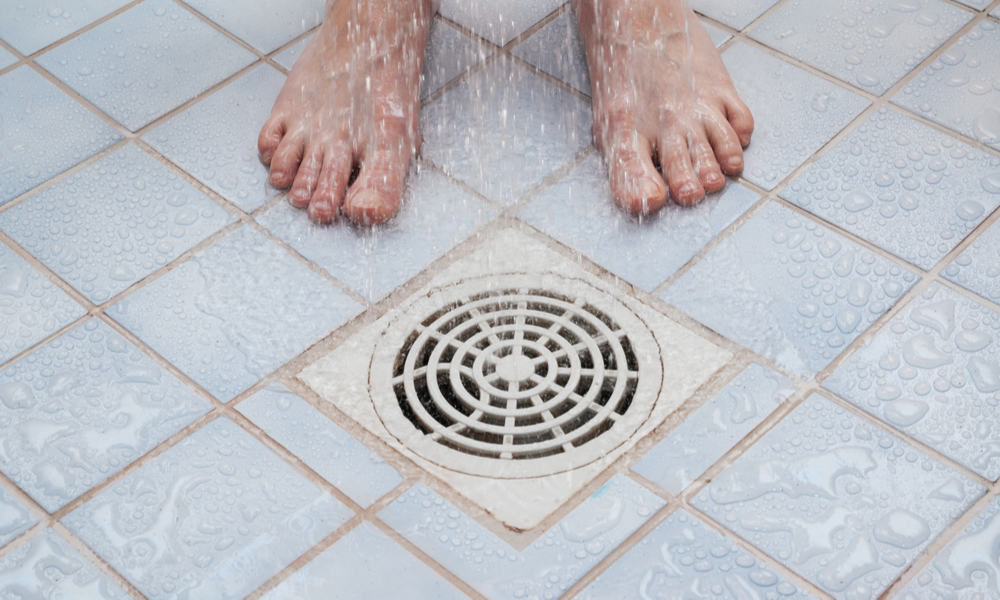
The Cause of Sewer Smell in Your Bathroom Sink Overflow
 If you have ever walked into your bathroom and been hit with a strong, unpleasant odor coming from your sink overflow, you are not alone. This is a common issue that many homeowners face and can be quite frustrating to deal with. The main cause of this sewer smell is often a buildup of bacteria and debris in the overflow drain, which can create a breeding ground for foul odors. This can be exacerbated by infrequent or improper cleaning of the sink and its components, as well as a lack of proper ventilation in the bathroom. Fortunately, there are some simple steps you can take to eliminate this unpleasant smell and prevent it from coming back.
If you have ever walked into your bathroom and been hit with a strong, unpleasant odor coming from your sink overflow, you are not alone. This is a common issue that many homeowners face and can be quite frustrating to deal with. The main cause of this sewer smell is often a buildup of bacteria and debris in the overflow drain, which can create a breeding ground for foul odors. This can be exacerbated by infrequent or improper cleaning of the sink and its components, as well as a lack of proper ventilation in the bathroom. Fortunately, there are some simple steps you can take to eliminate this unpleasant smell and prevent it from coming back.
Step 1: Properly Clean and Maintain Your Sink
 The first step to getting rid of the sewer smell in your bathroom sink overflow is to ensure that you are regularly cleaning and maintaining your sink. This means scrubbing the sink and its components, such as the pop-up drain and overflow, with a mixture of hot water and
baking soda
at least once a week. This will help to remove any buildup of bacteria, soap scum, and other debris that can contribute to the foul odor. It is also important to regularly clean and replace your
drain stopper
to prevent any buildup or clogs from occurring.
The first step to getting rid of the sewer smell in your bathroom sink overflow is to ensure that you are regularly cleaning and maintaining your sink. This means scrubbing the sink and its components, such as the pop-up drain and overflow, with a mixture of hot water and
baking soda
at least once a week. This will help to remove any buildup of bacteria, soap scum, and other debris that can contribute to the foul odor. It is also important to regularly clean and replace your
drain stopper
to prevent any buildup or clogs from occurring.
Step 2: Increase Ventilation in Your Bathroom
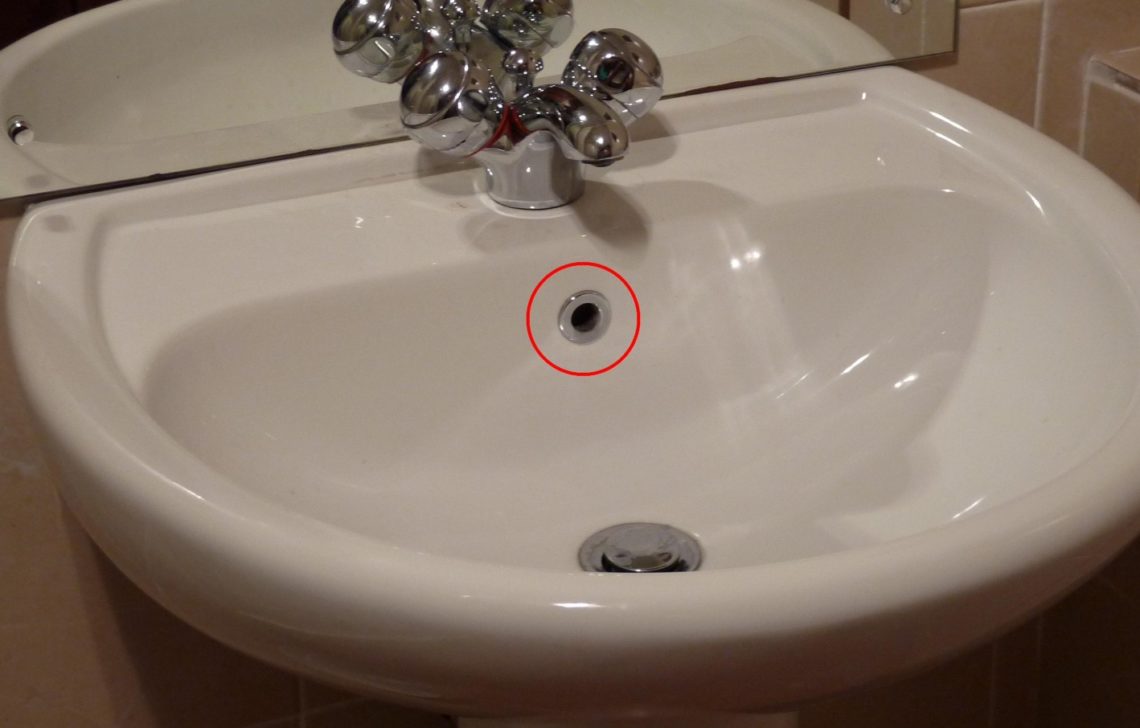 Another important factor in eliminating sewer smell from your bathroom sink overflow is proper ventilation. If your bathroom does not have a window or a
ventilation fan
, consider installing one. This will help to circulate fresh air and prevent any stale air from lingering in the room. Additionally, you can leave the door to your bathroom open after showering or using the sink to allow for better air flow.
Another important factor in eliminating sewer smell from your bathroom sink overflow is proper ventilation. If your bathroom does not have a window or a
ventilation fan
, consider installing one. This will help to circulate fresh air and prevent any stale air from lingering in the room. Additionally, you can leave the door to your bathroom open after showering or using the sink to allow for better air flow.
Step 3: Use Natural Remedies
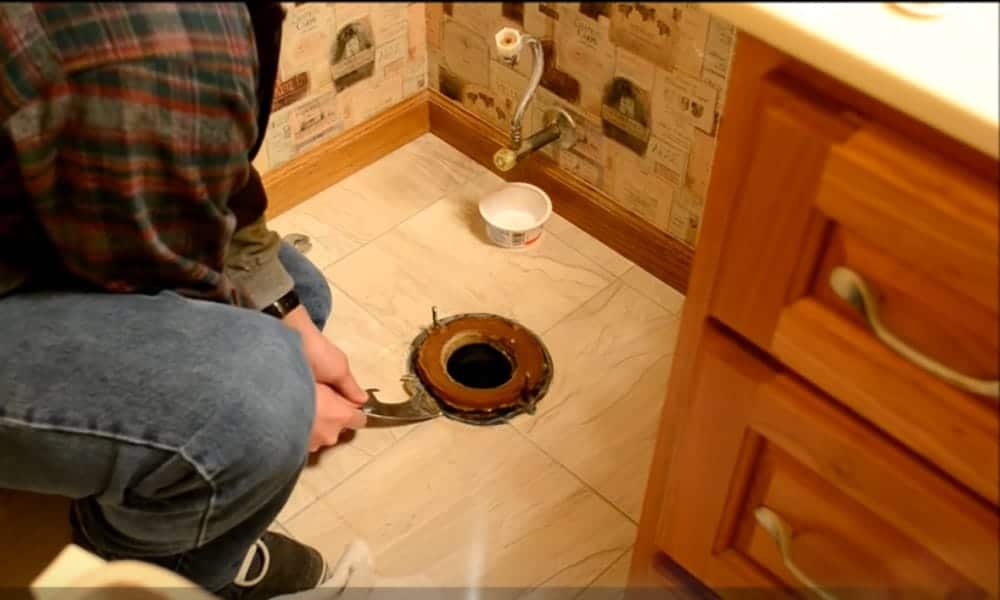 There are also some natural remedies that can help to eliminate sewer smell from your bathroom sink overflow. One option is to pour a cup of
white vinegar
down the overflow drain and let it sit for a few minutes before rinsing with hot water. This will help to kill any bacteria and neutralize the odor. You can also try pouring a mixture of
lemon juice
and
water
down the drain for a fresh, citrus smell.
There are also some natural remedies that can help to eliminate sewer smell from your bathroom sink overflow. One option is to pour a cup of
white vinegar
down the overflow drain and let it sit for a few minutes before rinsing with hot water. This will help to kill any bacteria and neutralize the odor. You can also try pouring a mixture of
lemon juice
and
water
down the drain for a fresh, citrus smell.
Step 4: Call a Professional
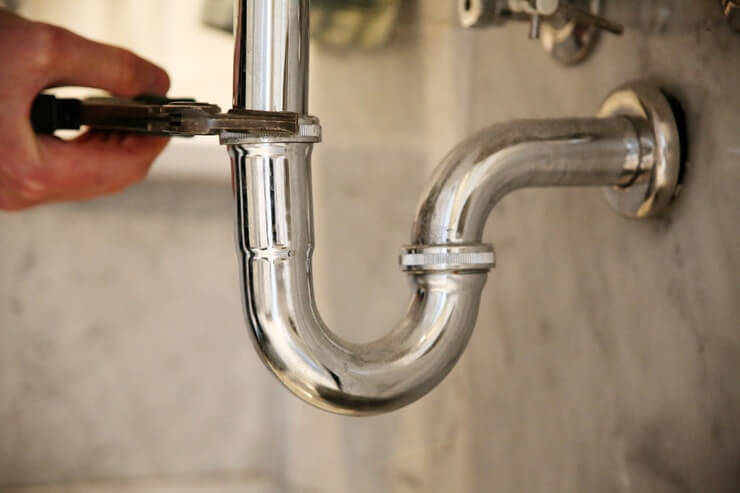 If you have tried the above steps and are still experiencing a strong sewer smell from your bathroom sink overflow, it may be time to call a professional plumber. They can inspect your plumbing system and make any necessary repairs or replacements to eliminate the odor for good.
If you have tried the above steps and are still experiencing a strong sewer smell from your bathroom sink overflow, it may be time to call a professional plumber. They can inspect your plumbing system and make any necessary repairs or replacements to eliminate the odor for good.
In Conclusion
 Dealing with a sewer smell in your bathroom sink overflow can be a frustrating and unpleasant experience. However, by regularly cleaning and maintaining your sink, increasing ventilation, using natural remedies, and seeking professional help if needed, you can eliminate this issue and enjoy a fresh and odor-free bathroom.
Dealing with a sewer smell in your bathroom sink overflow can be a frustrating and unpleasant experience. However, by regularly cleaning and maintaining your sink, increasing ventilation, using natural remedies, and seeking professional help if needed, you can eliminate this issue and enjoy a fresh and odor-free bathroom.
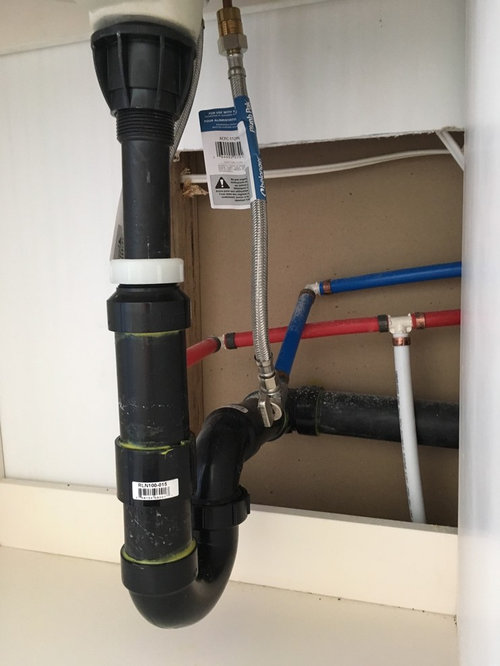





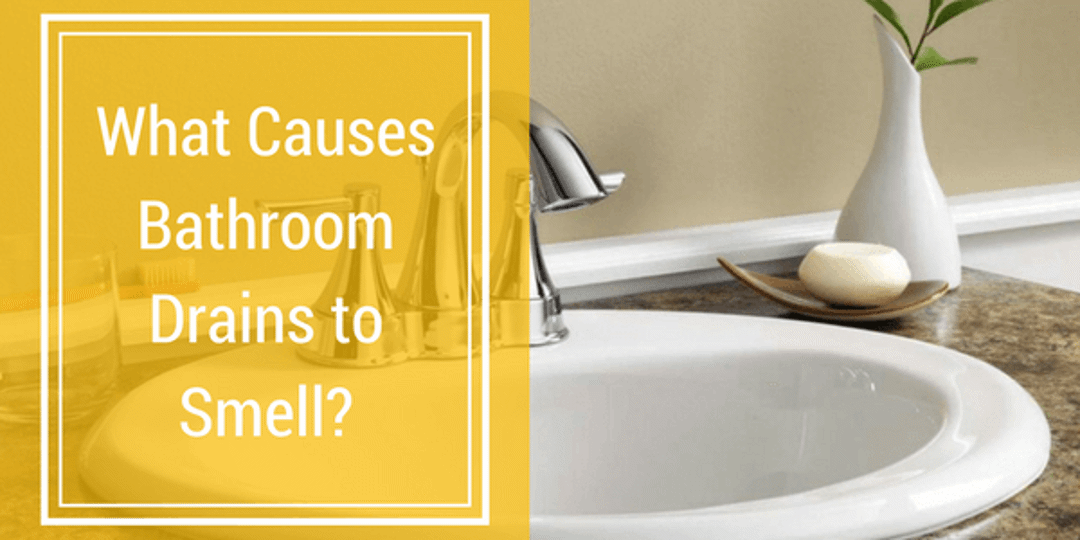
.jpg)







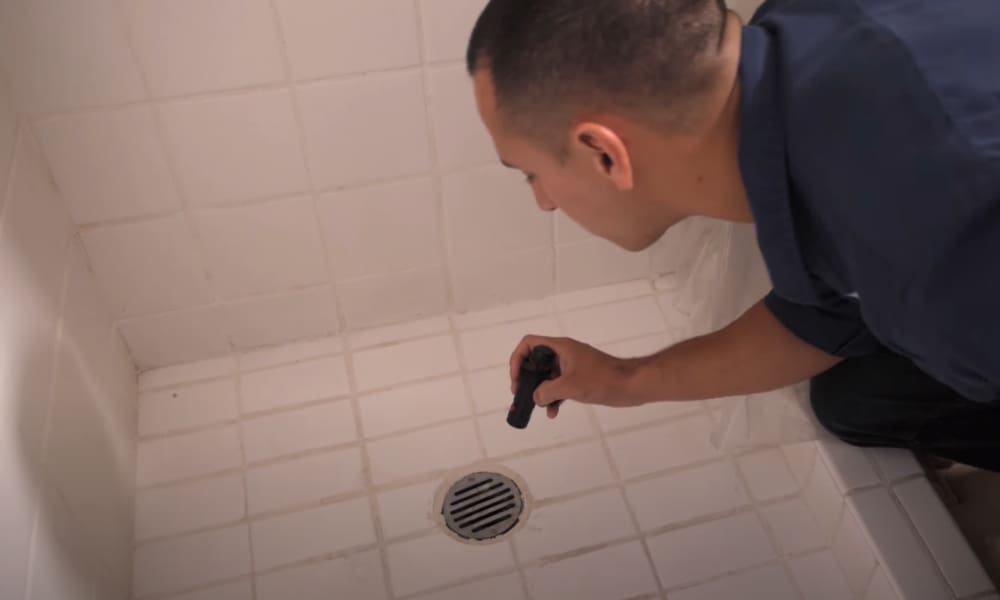




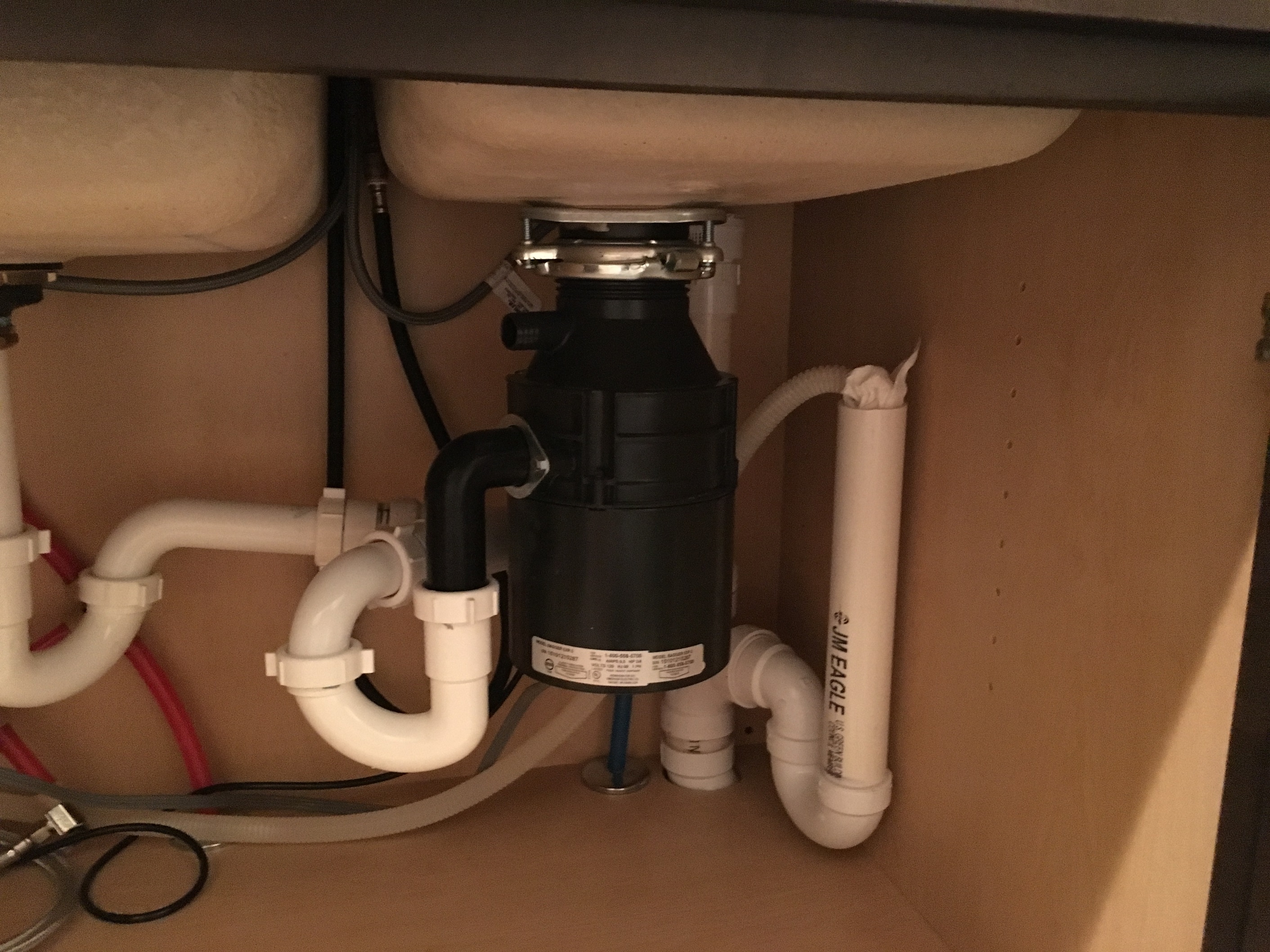


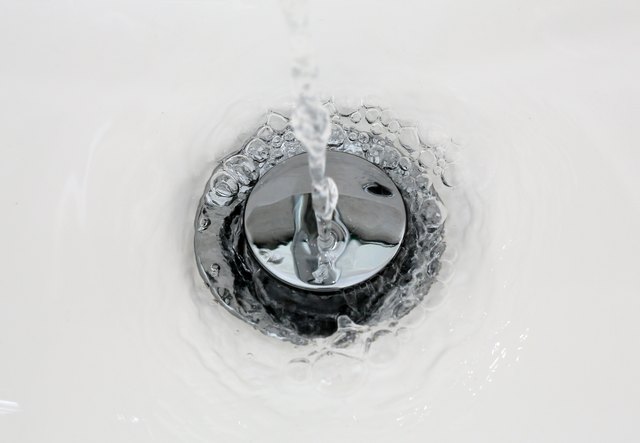
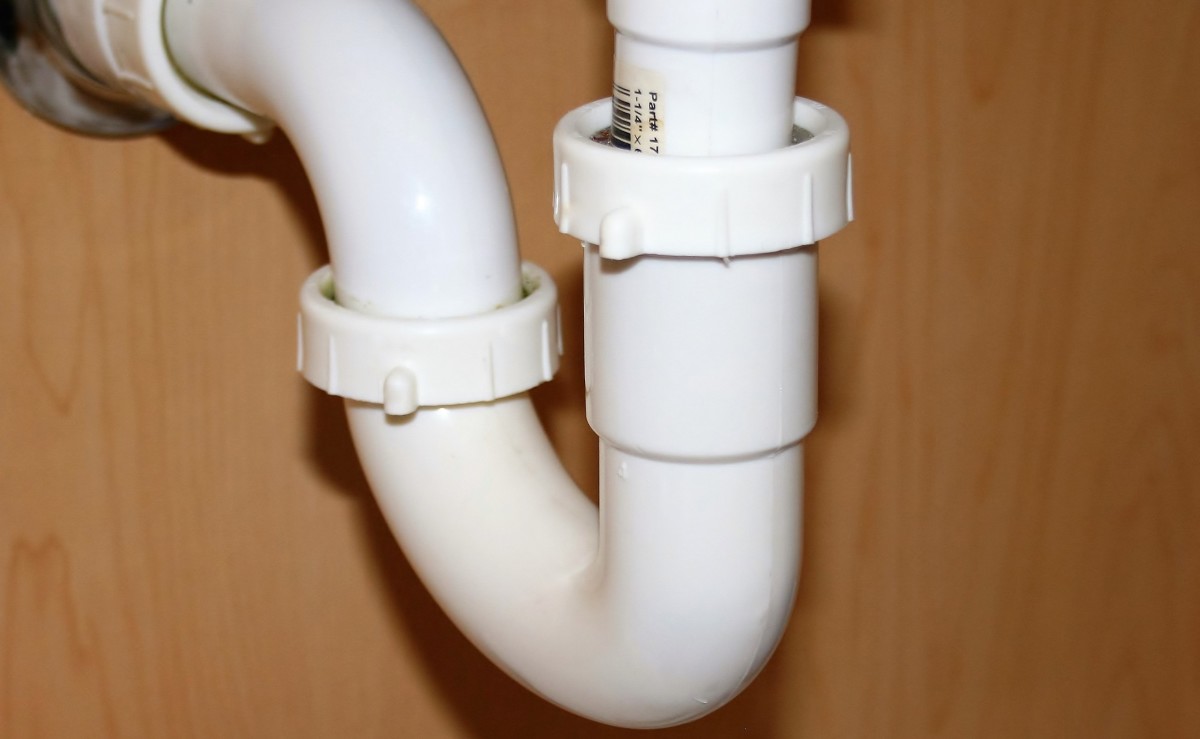






:max_bytes(150000):strip_icc()/sink-pipe-under-wash-basin-119001607-6f28aec4c66944efb7a9a38cb622ab8b.jpg)









